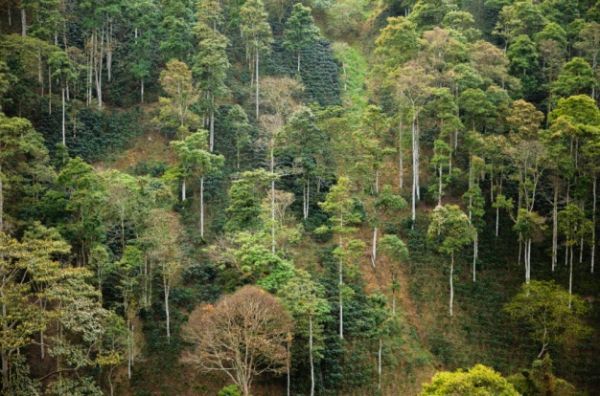Coffee has huge importance to many smallholder farmers around the world. The success of a year’s coffee crop can mean the difference between having enough cash in-hand for buying food and watching your household go hungry. For many, it is the crucial component of their food security, despite coffee not being an edible crop.
Ecological Economics
As is true for many agricultural products, the process for growing coffee is complex. Frequently, this process is presented as having trade-offs. Increased use of fertilizer and pesticides will likely lead to higher crop yields, but at significant cost to wildlife populations and human health. Using fewer agrochemicals is more environmentally friendly but requires farmers to face increased risks of losing crops to pests and disease. A recent paper led by researcher Juan Nicolás Hernandez-Aguilera, a postdoctoral scientist at the International Research Institute for Climate and Society, suggests this trade-off may not be as straightforward as previously thought, and that farmers could be better off financially if they used shade-growing practices for part of their production.
Read more at The Earth Institute - Columbia University
Photo: On this farm near Andes in Antioquia, Colombia, coffee trees grow beneath a layer of canopy trees in a shade-grown coffee plantation. CREDIT: Guillermo Santos


